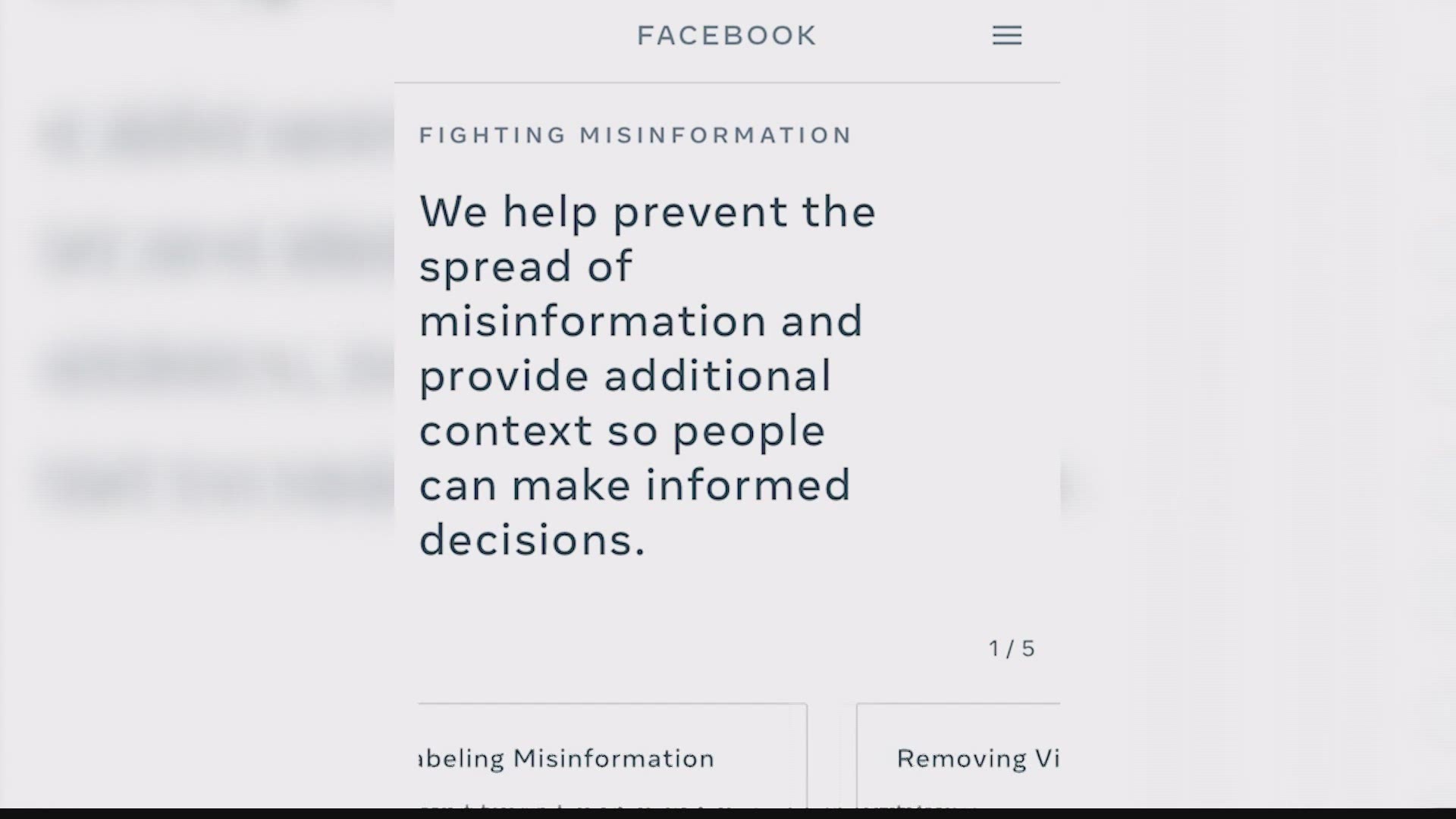HUNTSVILLE, Ala. — Infodemic is a term that was coined last year in a joint statement by the World Health Organization, the United Nations and other global health groups.
"We see that there's a lot of bad information being shared on social media and they dubbed it the infodemic," said Assistant Professor of Communication Arts at UAH, Dr. Candice Lanius.
A year ago, there was little to no information out about the novel coronavirus, but this hunger to know more - left room for a lot of misinformation.
"There was a vacuum for information and people just flooded it with rumors and conspiracy theories about where the virus came from and ways to prevent it or to treat it, and so that's what they meant about the infodemic. Once there's bad information out there, it's really difficult to then flood these social networks with good, high-quality information," said Lanius.
Lanius mentions a personal pandemic memory and how this ever-changing and large amount of information can be overwhelming for anybody.
"I remember distinctively when masks first came out, we were told you don't need to wear a mask if you're not a health care worker and then as the science came out, we were told you do need to wear a mask and I think that was very jarring for a lot of people to have the information change suddenly but that's how science is, right? As studies are done, as research is performed, we update and change our behaviors to sort of protect ourselves and to hopefully protect everyone from the coronavirus," said Launius.
But to three professors at UAH, including Lanius, those 'false information' pop-ups you get while scrolling social media seem to be working.
If you report a post that seems like it could be false information, you not only limit engagement with the post but encourage others to fact-check and stop any further spread of misinformation.
"So, across the board, people were then less likely to interact with that information and spread it further, which is the goal, we don't want that bad quality information spreading around social media," said Lanius.

